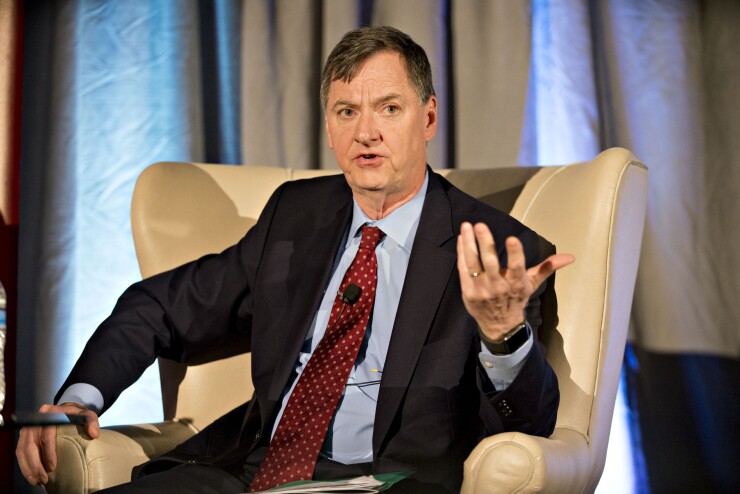The Federal Reserve has monetary policy in a good position at current interest rate levels and may not need to make changes again until well into next year, Chicago Fed President Charles Evans said.

“I can see the funds rate being flat and unchanged into the fall of 2020,” he said Monday during a television interview on CNBC. “For me, that’s to help support the inflation outlook and make sure that it’s sustainable at two or a little bit above; that would be fine too.”
Evans said that while recent economic data had strengthened a bit and the first quarter was looking a little stronger, he was concerned that inflation has fallen back below the Fed’s 2% target after a rise in 2018. It’s been below the goal throughout most of the current economic expansion, which has raised worries among central bankers that the public doesn’t believe they are committed to delivering on the stated target rate.
“Until cost pressures lead to higher inflation, I’m happy to be data-dependent and look at how things play out” in terms of the economy, he said.
Officials last month forecast no rate increases this year and just one in 2020. Evans, who votes on the policy-setting Federal Open Market Committee this year, joined his colleagues in pledging to be “patient” before deciding on future moves after deciding to hold rates steady in a target range of 2.25% to 2.5%.
“That’s a good place to be with the unemployment rate at 3.8%,” Evans said. “I think that can support continued employment growth. I don’t know what maximum employment is exactly. I think we can continue to probe.”





